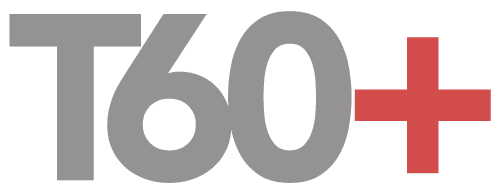Health Literacy maybe the key to a physically active lifestyle and active aging
How easy is it for you to understand the information you get from your healthcare provider? Do you look up what he/she said to you when you go home? Do you prepare for your visit with your healthcare professional by having a list of questions? How about your medications and lab results – do you know what you are taking and why and do you know the results of your lab work and what it means?
In my observation with my training clients, friends and relatives, there is a real health literacy gap. According to the CDC, nine out of 10 adults struggle to understand and use health information when it is unfamiliar, complex or jargon-filled.
WHAT DOES BEING HEALTH LITERATE OR HAVING HEALTH LITERACY MEAN?
The Patient Protection and Affordable Care Act of 2010, Title V, defines health literacy as the degree to which an individual has the capacity to obtain, communicate, process, and understand basic health information and services to make appropriate health decisions.
HEALTH LITERACY CAPACITY AND SKILLS
Capacity is the potential a person has to do or accomplish something. Health literacy skills are needed to help interpret health information that has been given to you and the ability to understand the services that are necessary. An example: you have an injured leg and it is swollen. Do you know if it is a potential problem that may require a visit to your healthcare provider or urgent care (is it broken or just bruised). Do you then understand that depending on the severity, you may or may not need an x-ray?
Another example: You are coughing and have a runny nose. Is it a cold or flu? Do you have a temperature? Is it 99-100 degrees, or is 104? Would you contact your healthcare provider or go to urgent care?
Gathering information and improving your health literacy skills help you:
- Find information and services (cold or flu? Urgent care or hospital?)
- Communicate your needs and preferences (I need to go to the ER, or let me just rest that sore leg and put ice on the swelling or it’s just a virus and get me more tissues)
- Process the meaning and usefulness of the information (what does a temperature of 104 in an adult mean)
- Understand the choices, consequences, and context of the information and services (what is your insurance? Do you have a high deductable? Are you in-plan or out-of-plan?)
- Decide which information matches your needs so you can act accordingly
According to the study The Health Literacy of America’s Adults: Results From the 2003 National Assessment, the majority of adults (53 percent) had intermediate health literacy. Approximately 22 percent had basic and 14 percent had below basic health literacy.
The study also looked at health literacy and background variables (such as educational attainment, age, race/ethnicity, where adults get information about health issues, and health insurance coverage). The study stated that adults with below basic or basic health literacy were more likely to get most of their information about health issues from radio and television.
Adults with higher health literacy tend to get their information about health issues from written sources (newspapers, magazines, books, brochures, or the Internet).
Now factor age into the equation. Adults 65 and older had lower average health literacy than younger adults. Additionally, adults in the 65 and older age group who had intermediate and proficient health literacy were still lower than the comparable percentage of adults in other age groups.
It is interesting to note that with each increasing level of health literacy, a higher percentage of adults got information about health issues from family members, friends, or coworkers. At least they were asking questions and having the conversations.
A new study from Finland found that 1/3 of 75 year old Finns found it difficult to understand and use health- related information.
WHY IS HEALTH LITERACY SO IMPORTANT?
People who have higher health literacy had better physical functioning, fewer illnesses and have self-reported better health. The Finnish authors will be looking at the potential of health literacy and its relationship to physically active lifestyle and active aging.
The Committee on Health Literacy of the Institute of Medicine wrote: Health literacy is of concern to everyone involved in health promotion and protection, disease prevention and early screening, healthcare maintenance, and policy making. Health literacy skills are needed for dialogue and discussion, reading health information, interpreting charts, making decisions about participating in research studies, using medical tools for personal or family health care—such as a peak flow meter or thermometer—calculating timing or dosage of medicine, or voting on health or environment issues. (Institute of Medicine 2004, p. 31).
Bottom Line: The more we know about our health, the better our health should be. Learn more about your health.
